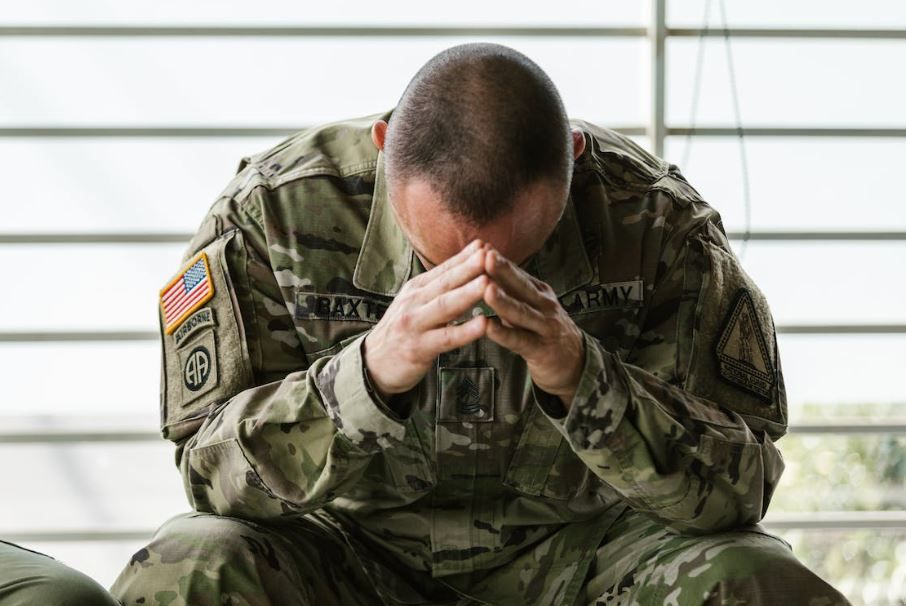Baron23
Well-Known Member

Cannabis for Pain and PTSD Goes Up in Smoke | Home
420 Intel is the leading source for cannabis news from around the world. Get the latest updates on cannabis legalization, politics and technology, as well as developments in medical and recreational marijuana news. Our commitment is to bring you the most important cannabis news stories every day...
Ah yeah....and this has zero to do with med docs, pharma companies, and psycho therapists being cut out of the $$ stream by cannabis. My personal experience says this is utter BS as far as pain goes. PSTD...eh, I have no knowledge so can't comment.
“The favorable outcomes that patients report with these substances for both pain and PTSD currently are better explained by expectancy biases than by a treatment effect,” the researchers write.
In a new article in JAMA Psychiatry, researchers review the evidence for cannabis in the treatment of pain or post-traumatic stress disorder (PTSD). Their findings: it’s a pipe dream. Instead, they write, studies show that the placebo effect is responsible for any improvement.
The article was written by Aaron S. Wolfgang at Yale University Medical School and Charles W. Hoge at Walter Reed National Military Medical Center. It focused primarily on members of the military and veterans.
“The current body of evidence does not support the use of cannabis or cannabinoids for the treatment of pain or PTSD in military personnel or veterans. The favorable outcomes that patients report with these substances for both pain and PTSD currently are better explained by expectancy biases than by a treatment effect,” write Wolfgang and Hoge.
Wolfgang and Hoge cite two meta-analyses of randomized clinical trials (RCTs) that compared cannabis and cannabinoids to placebo for pain. One study, including 36 RCTs, concluded overall that there was no benefit; some individual studies in that analysis did show a slight benefit over placebo, the authors write, but they were at high risk of bias, and the evidence was considered low-quality. The majority of studies found no benefit.
Another meta-analysis cited by the authors included 20 RCTs and found, again, that the drugs didn’t beat placebo. However, the placebo group experienced a moderate-to-large improvement in pain.
The authors write, “This suggests that patients’ subjective report of improvement in pain while taking a cannabinoid may be attributable to the placebo effect, potentially due to favorable expectations of the cannabinoid’s therapeutic potential rather than to a biological treatment effect.”
What about PTSD? The researchers write that only two RCTs of cannabis/cannabinoids for PTSD have been conducted. One, a tiny study of 10 people, found an effect for the drug—but the drug was a synthetic cannabinoid that has since been discontinued, and the tiny sample size makes it impossible to draw any firm conclusion from this study.
The second RCT was a large study of “smoked cannabis” with four groups: a high CBD group, a high THC group, a moderate THC and CBD group, and a control arm (low THC and CBD). The blind was broken: every single person in the high THC and moderate groups correctly guessed their group allocation, and most people in the other groups guessed correctly as well.
Despite this, there was no difference between groups on PTSD symptoms—all the groups improved quite a lot during the study. Even the group that smoked a “placebo” (low THC and CBD) did extremely well (effect size d = 1.30). Thus, Wolfgang and Hoge write that the placebo effect is likely responsible for the improvement in PTSD symptoms found in this study.
“An effect size of this magnitude in the placebo group is unusual among RCTs examining medications for treating PTSD, which suggests a placebo effect, potentially due to expectancy biases that have also been found in other studies of cannabinoids,” they write.
The researchers add that cannabis use—particularly long-term use, as would be required to treat a chronic condition—is associated with many adverse effects. They cite a study of veterans with subthreshold or full PTSD, which found those who used cannabis were more likely to have depression, anxiety, and suicidal ideation, have decreased cognitive functioning, and use other substances or avoidance to cope with PTSD. Another study found that those who used cannabis were less likely to improve when undergoing actual PTSD treatment, such as with exposure therapy.
In conclusion, write Wolfgang and Hoge, people need to be educated about the fact that cannabis is ineffective for pain and PTSD, failing to beat a placebo for these conditions. Moreover, they add, the drug comes with harmful effects and may even reduce the impact of actual effective PTSD treatment.